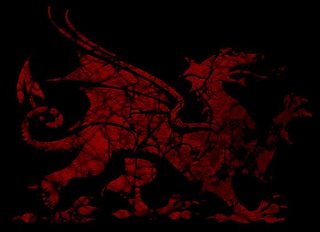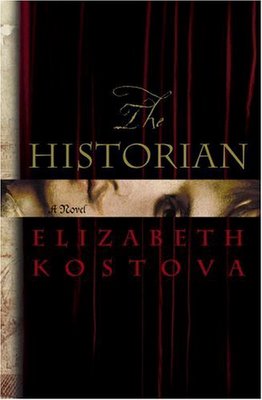My dear and unfortunate successor:
It is with regret that I imagine you, whoever you are, reading the account I must put down here. The regret is partly for myself -- because I will surely be at least in trouble, maybe dead, or perhaps worse, if this is in your hands. But my regret is also for you, my yet-unknown friend, because only by someone who needs such vile information will this letter someday be read. If you are not my successor in some other sense, you will soon be my heir-and I feel sorrow at bequeathing to another human being my own, perhaps unbelievable, experience of evil. Why I myself inherited it I don't know, but I hope to discover that fact, eventually-perhaps in the course of writing to you or perhaps in the course of further events.
“The Historian of Elizabeth Kostova's novel is Paul, who years before the novel begins was drawn into a historical search for Vlad the Impaler, the Romanian tyrant who inspired Dracula, when he found a colleague's book with just an illustration of a dragon in its center. Paul's daughter narrates the story, telling of her search for the historical truth behing Vlad the Impaler, to understand her father's past and her mother's mysterious fate. As she explores through ancient texts and clues scattered across Europe, she discovers to her horror that Vlad is the possessor of a ancient evil power and is still alive, or at least at some level of existence. It's an evil that she must confront and understand if her father is to be saved.
What does the legend of Vlad the Impaler have to do with the modern world? Is it possible that the Dracula of myth truly existed—and that he has lived on, century after century, pursuing his own unknowable ends? The answers to these questions cross time and borders, as first the father and then the daughter search for clues, from dusty Ivy League libraries to Istanbul, Budapest, and the depths of Eastern Europe. In city after city, in monasteries and archives, in letters and in secret conversations, the horrible truth emerges about Vlad the Impaler's dark reign—and about a time-defying pact that may have kept his awful work alive down through the ages.
The criss-crossing story lines mirror the political advances, retreats, triumphs, and losses that shaped Dracula's beleaguered homeland--sometimes with the Byzantines on top, sometimes the Ottomans, sometimes the rag-tag local tribes, or the Orthodox church, and sometimes a fresh conqueror like the Soviet Union.
Parsing obscure signs and hidden texts, reading codes worked into the fabric of medieval monastic traditions—and evading the unknown adversaries who will go to any lengths to conceal and protect Vlad's ancient powers—one woman comes ever closer to the secret of her own past and a confrontation with the very definition of evil. Elizabeth Kostova's debut novel is an adventure of monumental proportions, a relentless tale that blends fact and fantasy, history and the present, with an assurance that is almost unbearably suspenseful—and utterly unforgettable.”
The book I’m devouring fervently at present and which I recommend for everyone. It’s not only the dense narration itself, the beautiful romance, the dark environment and gothic imagery but also the horrible facts and truth about Vlad the Impaler and the strong dose of European history. If you relate somehow to these kind of elements then this novel is a must have.
There is already a Spanish adaptation of the book in a game version on-line. The on-line version develops in various scenarios, like the Istanbul market, a vampire antique library, the Transylvanian forests and the church of Snagov where, till 1930, Lord Vlad was supposed to be buried, which many believe to be the true Count Dracula. The link right here:
http://www.lahistoriadora.com/
I end this post with another extract from the book when the narrator recalls that after reading descriptions of Vlad burning young boys or impaling "a large family," she tried to forget the words:
There is already a Spanish adaptation of the book in a game version on-line. The on-line version develops in various scenarios, like the Istanbul market, a vampire antique library, the Transylvanian forests and the church of Snagov where, till 1930, Lord Vlad was supposed to be buried, which many believe to be the true Count Dracula. The link right here:
http://www.lahistoriadora.com/
I end this post with another extract from the book when the narrator recalls that after reading descriptions of Vlad burning young boys or impaling "a large family," she tried to forget the words:
"For all his attention to my historical education, my father had neglected to tell me this: history's terrible moments were real. I understand now, decades later, that he could never have told me. Only history itself can convince you of such a truth."

Led ("To you, perceptive reader, I bequeath my history....")


Sem comentários:
Enviar um comentário